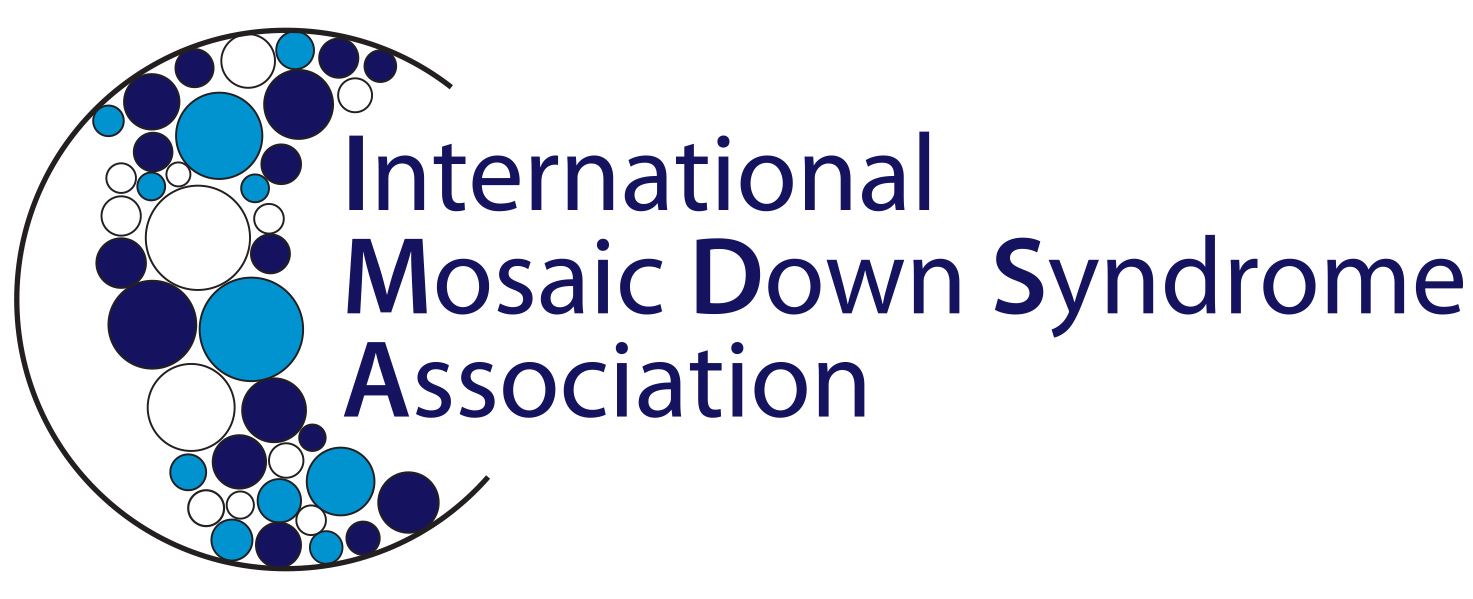FAQ / mDs Facts
How Many People Have mosaic Down syndrome?
What did I do to cause my child to have mosaic Down syndrome?
How do I find out where the cells are located in the body?
Now that my child has a diagnosis of mDs is there anything that we should do medically?
Will my child need special help?
What health concerns does a child with mosaic Down syndrome have?
What does the future hold for my child?
What is the life expectancy of individuals with mosaic Down syndrome?
How should I treat my child with mosaic Down syndrome?

Mosaic Down syndrome happens during cell division during and/or after conception.
- People with mDs have a percentage of cells with an extra copy of the 21st chromosome and the remaining cells are unaffected. This type of Down syndrome accounts for about 2%-4% of the cases of Down syndrome.
- Mosaic translocation Down syndrome occurs when a person has a percentage of translocation Down syndrome cells and the remaining cells are unaffected. Translocation happens when a piece of chromosome 21 becomes attached to another chromosome, during cell division. Translocation can be inherited by parents, but this is not always the case. This type of Down syndrome has not yet been studied, so we are unable to give an accurate number of occurrences.
How Many People Have mosaic Down syndrome?
- Approximately 1 in 27,000 people are diagnosed with mosaic Down syndrome.
- Approximately 15% of individuals diagnosed with Trisomy 21 Down syndrome are misdiagnosed and actually have mosaic Down syndrome.
- There are many individuals who are never diagnosed with this condition.
What did I do to cause my child to have mDs?
- Nothing at all! mosaic Down syndrome happens during cell division at and/or after conception. You did nothing to cause this to happen.
My child does not have all the Ds physical characteristics. Does this mean he/she will be higher functioning?
- The old saying, “You can't judge a book by its cover” rings true here. You cannot determine your child's abilities by the physical Down syndrome characteristics they present.
- Depending on where the affected cells are located in the body and how many cells there are will determine how your child is affected.
How do I find out where the cells are located in the body?
- A blood test and skin test will tell you what percentage of cells is affected. According to research, if the percentage of the affected blood cells is higher, the chance of being born with a Congenital Heart Defect (CHD) is more likely and the lower the percent of skin cells would indicate a higher IQ.
- Other than a biopsy on certain organs, there is no way of knowing where these cells are located.
Now that my child has a diagnosis of mDs is there anything that we should do medically?
IMDSA recommend that parents or caregivers of children with mDs follow the advice given by the American Academy of Pediatrics.
Will my child need special help?
- The majority of children with mosaic Down syndrome do experience delays in developmental milestones compared to their typically developing peers.
- The most prominent delay noted is speech and communication; however delays can be present in all areas of development.
- The majority of children with mDs require special therapy. Your child may have developmental delays with speech, fine and gross motor skills. With the help of Speech, Occupational, and Physical Therapists, your child's delays can be helped and often he/she will overcome these delays
- One noted learning problem is with mathematics. However, many excel in reading and writing.
- Some children require special education once they reach school age. Most children are “mainstreamed” in regular education classrooms leaving for extra support in academic areas. But, some children with mDs require no special education at all!
- There is no way to determine how your child will be affected. With time, you will be able to see his/her strengths and if there is a delay you will be able to help your child with appropriate teaching and therapy.
What health concerns does a child with mDs have?
- Because children with mDs have a percentage of affected cells in their body, they can have the same health concerns of a person with Ds.
- It is important to talk with your doctor about having scheduled Down syndrome health check-ups as described by the DSMIG
What does the future hold for my child?
- No one can tell you what your child will grow up to be! People with mosaic Down syndrome can grow up to be just like everyone else. They have jobs, and families, fun and friends. They have the same feelings as anyone and the same ambitions of their peers.
- If the affected cells are not located in the reproductive organs, individuals with mosaic Down syndrome have a higher likelihood of having children without extra chromosomes.
- Some individuals do go on to college and have careers. This all depends upon the individual's wants and capabilities.
- Some individuals do drive cars, and some do not. This depends on the individual's comfort level with this and their reflexes that are required for driving.
- Some individuals do live independently and marry.
- The majority of individuals do not have speech impairments as adults.
What is the life expectancy of individuals with mosaic Down syndrome?
- Currently we have no research that indicates individuals with mosaic Down syndrome will live longer than their peers with Down syndrome.
- Current research suggests that individuals with Down syndrome live to 55 yrs of age.
- The oldest living woman with mosaic Down syndrome lived to the age of 83 years old.
- With the advances of medical development individuals born in this century should have the same life expectancy as those without extra chromosomes.
- It is important to remember that people do not die from having mosaic Down syndrome, they die because of medical complications surrounding this syndrome.
How should I treat my child with mosaic Down syndrome?
- Expect the very best from your child and your child will give you their very best! Give them the love and attention that every child needs and enjoy them for who they are. Mosaic Down syndrome is not WHO your child is - it is WHAT your child has.
In this article mDs pertains to both forms of mosaic Down syndrome. (mDs & mTDs)
Reference: Virginia Commonwealth University/Medical College of Virginia mosaicism for Down syndrome research
